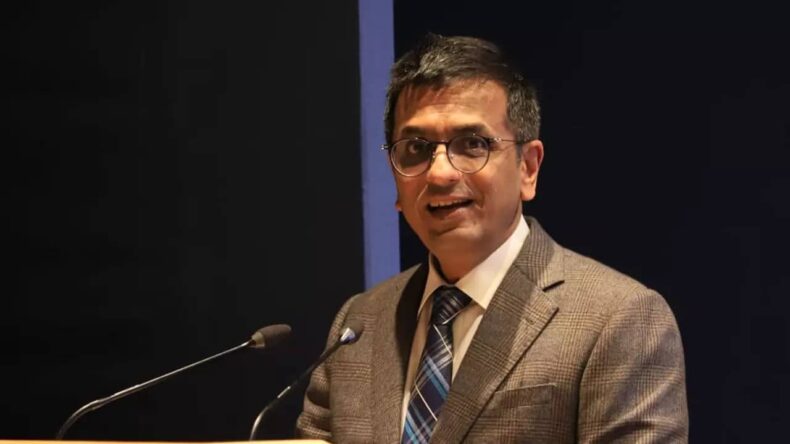Announcing a zero-tolerance policy toward such “misbehavior, Sexist remarks,” the CJI told the Supreme Court’s GSICC on Wednesday.
Women still have to endure some subtle sexism in professional workspaces, the fact is undeniable. DY Chandrachud, the country’s Chief Justice, recently discussed the issue at an event and talked about several steps the judiciary will take to ensure zero tolerance for sexism and sexist jokes directed at women.

A lot of emphases was also placed on how he is ensuring that changes are made for women lawyers.
“In the early days of my career, when I was a young lawyer, I remember sitting in a group, and sometimes senior lawyers used inappropriate language towards women lawyers. It wasn’t till recently that people realized that certain kinds of behavior are simply unacceptable,” said Chief Justice of India DY Chandrachud on Wednesday.
Announcing a zero-tolerance policy toward such “misbehavior,” the CJI (Chief Justice of India) told the Supreme Court’s Gender Sensitization and Internal Complaints Committee (GSICC) on Wednesday.
Women’s harassment and discrimination must be addressed, according to the CJI. He noted that he had heard shocking stories about lawyers and judges acting badly toward women. According to the chief justice, inappropriate behavior, improper jokes, and other forms of inappropriate behavior are not to be tolerated.

He added that these behaviors do not just occur in the corridors, but also as one moves up to higher positions. Moreover, CJI added that the legal field and the Supreme Court needed to be “gender-equal workplaces and environments”.
Additionally, the Chief Justice of India revealed that a committee headed by Justice Moushami Bhattacharya of the Kolkata High Court is compiling a “legal glossary” of “inappropriate terms” which are being used by the judiciary and may affect how women are treated.
It includes contributions from several high-profile lawyers, judges, and researchers, including Gita Mittal, former Chief Justice of the J&K High Court, and Professor Jhuma Sen of Jindal Global University.
As part of my legal glossary, I have compiled a list of terms that are inappropriate in gender disclosure that I started a couple of years ago. Women have been called ‘concubines’ and ‘keeps’ in court judgments. Bringing these terms to the forefront is important. It is not for belittling judges, but to see why using these terms reflects our commitment to gender sensitization,” explained the Chief Justice. Soon, the glossary is expected to be made public.
In light of recent discussions on judges’ appointments and the lack of female judges on the bench, the CJI demanded that the legal profession be made “an equal-opportunity profession”.
Despite barriers to women entering the legal profession, there are places where women drop out. He urged lawyers to ‘make more room for women in senior lawyers’ offices, courtrooms, and high court appointments.”
“It is necessary to let the Collegiums of the high courts know that the Supreme Court has very talented women lawyers.” In addition, the CJI talked about creating physical space for members of the Supreme Court who are Women, and lawyers.
CJI said in his speech that as a proposal to reconstruct the Supreme Court Annexe building is under construction, a larger space should be included on the ground floor of the new building plan for a Women’s Bar Association room, which would enable women lawyers to sit comfortably. Clapping and cheers erupted from the lawyers gathered for the announcement.
A keynote speech delivered by Justice Hima Kohli, Chairperson of the GSICC, mentioned the lack of “one day” to mark women’s role and status in India.

Justice Kohli explained that in our culture, there isn’t a “Mother’s Day,” “Father’s Day,” or “Women’s Day.” Every day is Women’s day in our culture, and I am very glad to see so many men here,













